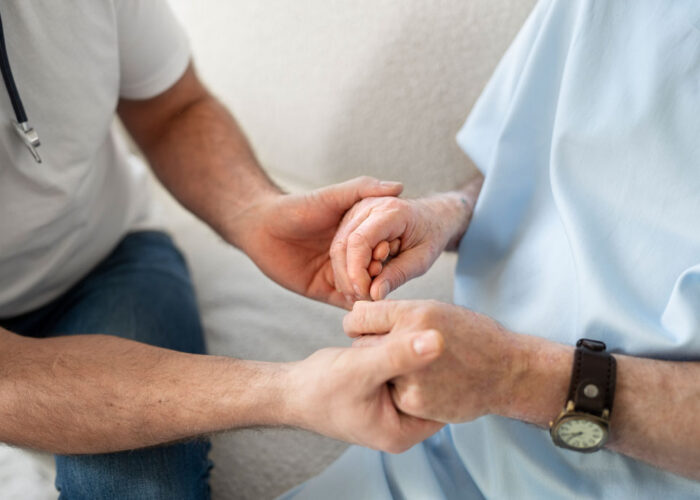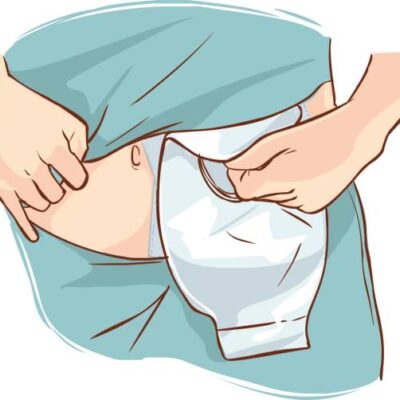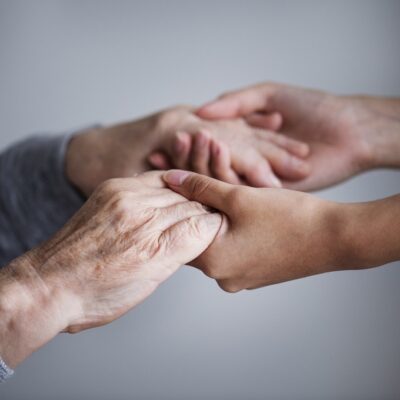Learn effective strategies and techniques to overcome challenges in wound care for elderly patients. Ensure optimal healing and prevent complications.
Introduction
Wound care for elderly patients can be a complex and challenging task. As individuals age, their skin becomes more fragile and susceptible to injuries. Additionally, underlying health conditions, such as diabetes and poor circulation, can further complicate the healing process. To ensure proper wound care and promote optimal healing in elderly patients, it is crucial to overcome these challenges effectively. In this article, we will discuss various strategies, techniques, and resources to address the unique obstacles faced in wound care for elderly patients.
The Importance of Proper Wound Care
Before diving into the challenges faced in wound care for elderly patients, let’s first understand the importance of proper wound care. Wound care plays a vital role in preventing infection, promoting healing, and minimizing complications. Neglecting wound care can lead to severe consequences, such as chronic wounds, delayed healing, and an increased risk of infection. By providing appropriate care and addressing challenges proactively, healthcare professionals can significantly improve the outcomes for elderly patients with wounds.
Challenges in Wound Care for Elderly Patients
1. Fragile Skin and Increased Susceptibility to Injuries
As individuals age, their skin undergoes natural changes, becoming thinner, less elastic, and more vulnerable to injuries. The delicate nature of elderly skin makes it prone to tears, cuts, and pressure ulcers. Moreover, reduced sensation due to age-related nerve damage can result in unnoticed injuries, further complicating wound care.
To overcome this challenge, caregivers and healthcare professionals should handle elderly patients’ skin with extra care. They should use gentle techniques during wound dressing changes and consider the use of appropriate wound dressings that provide protection and promote healing without causing further trauma to the skin.
2. Underlying Health Conditions
Many elderly patients have underlying health conditions that affect the healing process. Chronic conditions such as diabetes, peripheral vascular disease, and compromised immune systems can impair the body’s ability to heal wounds effectively. These conditions create a hostile environment for wound healing and increase the risk of complications.
To overcome this challenge, a multidisciplinary approach involving healthcare professionals from various specialties is crucial. Collaborative efforts can help address the underlying health conditions and optimize wound care strategies for elderly patients. Coordinating with endocrinologists, vascular surgeons, and nutritionists can provide a holistic approach to wound management.
3. Poor Circulation and Delayed Healing
Age-related changes in the circulatory system can lead to poor blood flow to the extremities, impairing the healing process. Reduced circulation hinders the delivery of vital nutrients and oxygen to the wound site, delaying healing and increasing the risk of infection.
To overcome this challenge, healthcare professionals can implement strategies to improve circulation. Regular exercise, elevation of the affected limb, and the use of compression stockings or garments can help enhance blood flow. Additionally, healthcare providers can collaborate with vascular specialists to explore interventions such as vascular surgeries or minimally invasive procedures to improve circulation.
4. Limited Mobility and Pressure Ulcers
Elderly patients often face limited mobility due to age-related conditions or postoperative recovery. Prolonged periods of immobility can lead to the development of pressure ulcers, commonly known as bedsores. These ulcers can be challenging to manage and may lead to significant pain, infection, and delayed healing.
To overcome this challenge, caregivers and healthcare professionals should prioritize regular repositioning of immobile patients to relieve pressure on vulnerable areas. The use of pressure-relieving devices, such as specialized mattresses and cushions, can also help prevent pressure ulcers. Thorough skin assessments and diligent wound care are essential to identify and address pressure ulcers at their early stages.
5. Cognitive Impairment and Compliance Issues
Elderly patients with cognitive impairments, such as dementia or Alzheimer’s disease, may face challenges in understanding and complying with wound care instructions. They may resist treatment or remove dressings, increasing the risk of infection and hindering the healing process.
To overcome this challenge, healthcare professionals can employ strategies to simplify wound care instructions and enhance patient compliance. Using visual aids, step-by-step written instructions, and involving family members or caregivers in the wound care process can help ensure that proper care is provided even in cases of cognitive impairment.
Frequently Asked Questions (FAQs)
FAQ 1: How can I prevent wound infections in elderly patients?
Preventing wound infections in elderly patients requires a comprehensive approach. Here are some key steps:
- Keep the wound clean and dry.
- Use sterile techniques during dressing changes.
- Administer appropriate antibiotics when necessary.
- Ensure proper nutrition to support the immune system.
- Promote good hand hygiene for caregivers and healthcare professionals.
FAQ 2: Are there any specialized wound dressings for elderly patients?
Yes, there are specialized wound dressings available for elderly patients. These dressings are designed to address the unique challenges faced by elderly individuals, such as fragile skin and limited mobility. Some examples include foam dressings, hydrocolloid dressings, and alginate dressings. Consulting with a wound care specialist can help determine the most suitable dressing for each patient’s needs.
FAQ 3: How long does it take for wounds to heal in elderly patients?
The healing time for wounds in elderly patients can vary depending on various factors, including the type and severity of the wound, underlying health conditions, and the overall health status of the individual. In general, elderly patients may experience delayed wound healing compared to younger individuals. It is essential to monitor the wound regularly and consult with a healthcare professional for a personalized assessment and guidance.
FAQ 4: Can nutrition impact wound healing in elderly patients?
Yes, nutrition plays a crucial role in wound healing for elderly patients. Adequate intake of essential nutrients, including protein, vitamins (such as vitamin C and vitamin A), and minerals (such as zinc), is essential for optimal wound healing. In cases of poor nutrition or malnourishment, healthcare professionals may recommend dietary supplements or consult with a registered dietitian to develop a nutrition plan that supports wound healing.
FAQ 5: Is debridement necessary for all wounds in elderly patients?
Debridement, the removal of dead or infected tissue from a wound, is not always necessary for all wounds in elderly patients. The decision to perform debridement depends on the specific characteristics of the wound and the overall condition of the patient. Healthcare professionals will assess the wound and consider factors such as the presence of necrotic tissue, infection, and the patient’s ability to tolerate the procedure. A thorough evaluation by a wound care specialist will help determine the appropriate course of action.
FAQ 6: Can home care services assist with wound care for elderly patients?
Yes, home care services can play a crucial role in providing wound care for elderly patients. These services often include skilled nursing care, wound assessments, and assistance with dressing changes. Home care professionals can monitor the healing progress, educate patients and caregivers, and ensure that wound care is performed correctly and consistently in the comfort of the patient’s home.
Conclusion
Overcoming challenges in wound care for elderly patients requires a comprehensive and multidisciplinary approach. By addressing the specific obstacles faced by elderly individuals, such as fragile skin, underlying health conditions, and limited mobility, healthcare professionals can promote optimal wound healing and prevent complications. Moreover, involving patients, caregivers, and specialized resources like home care services can enhance the overall wound care experience for elderly patients. By providing tailored and attentive care, we can ensure that elderly individuals receive the support they need to overcome wound care challenges and maintain their overall well-being.






No Comment! Be the first one.